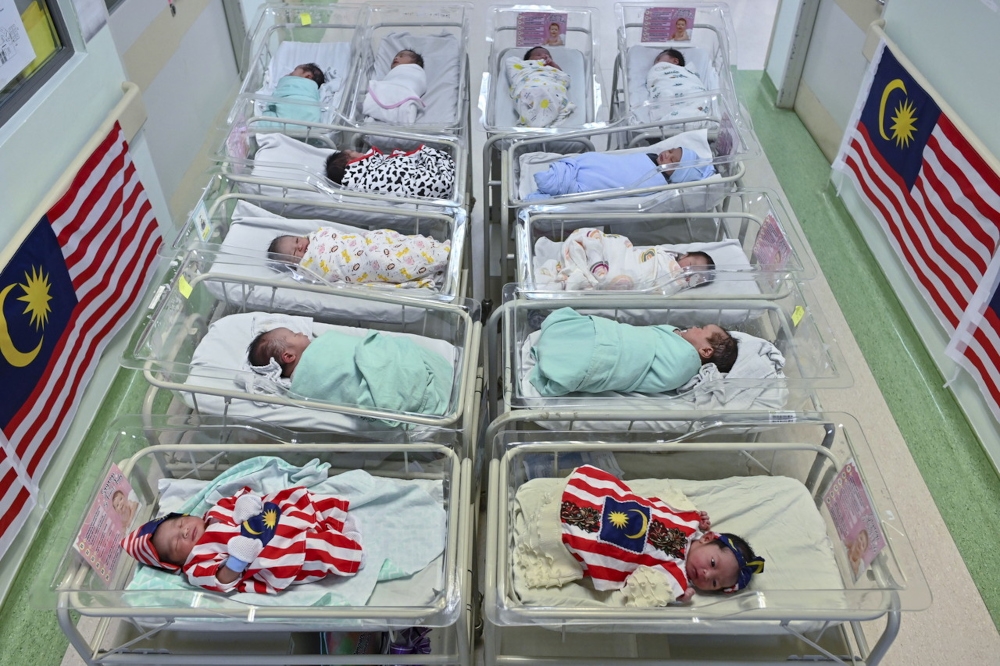KUALA LUMPUR, Nov 2 — Home Minister Datuk Seri Saifuddin Nasution Ismail’s attempt to defend the federal government’s proposed “regressive” amendments to citizenship laws in the Federal Constitution by using an analogy involving foreigners’ children is misleading, a group which helps Malaysian families with statelessness issue said today.
Non-government organisation Development of Human Resources for Rural Areas (DHRRA) Malaysia said this is because the government’s proposed citizenship amendments — which would remove protections against becoming stateless — will actually affect the children of Malaysian families.
“These changes threaten to remove the existing protections in the Federal Constitution that safeguard stateless children born to Malaysian families and foundlings from statelessness,” the group said in a statement today.
DHRRA said Saifuddin Nasution’s analogy “not only misleads but also diverges significantly” from the main objections to the regressive citizenship amendments.
Civil society groups have been objecting to the government’s proposed “regressive” amendments as Malaysian families’ children would lose existing protections against becoming stateless.
“While it is understandable that governments may have legitimate concerns about the status of foreign individuals in the country, it is equally important to ensure that the rights and interests of Malaysian citizens are protected,” DHRRA said.
The home minister had used the children of foreigners as an example, but DHRRA said there are thousands of genuine stateless cases domestically involving individuals who have proven that they have strong links to Malaysian families.
DHRRA said these persons were born in Malaysia and have never left the country since their birth, adding that these cases include babies and children abandoned at birth in Malaysia and later adopted by Malaysians, as well as children born to Malaysian fathers who had yet to or did not register their marriages.
“Their statelessness is not due to fault of their own but rather due to the gaps in nationality law, policies and administrative procedures in the conferral of Malaysian citizenship,” DHRRA said.
Currently, such children in Malaysian families face challenges to be recognised as Malaysian citizens and could even see their citizenship applications being rejected repeatedly.
The Federal Constitution currently has several provisions — Section 19B under the Second Schedule and Section 1(a) and Section 1(e) in Part II — that provide a potential way for those such as babies abandoned at birth in Malaysia to automatically become Malaysian citizens.
DHRRA said that the government’s proposed amendments would remove these protections for vulnerable children.
DHRRA said that during an engagement session with the Home Ministry on September 12, civil society organisations had asked if the claims of “floodgates” and “foreigners” used to justify the proposed amendments were backed by data, but noted that the ministry did not give any concrete explanation.
DHRRA said it was disappointing for the home minister to equate the plight of abandoned Malaysia-born children who do not have links to any country, with that of migrant children who still have a country to call their own.
It said it was disheartening that the Home Ministry is proceeding with the proposed “regressive” amendments and urged the government to ensure that any amendments made to Malaysia’s citizenship laws would “prioritise the protection of Malaysian families”.

In a separate statement today, human rights advocacy group Lawyers For Liberty (LFL) also criticised Saifuddin Nasution’s portrayal of the proposed citizenship amendments as being a security issue due to Malaysia’s purported facing of problems involving migrants.
“This, in of itself, at best, shows a total lack of understanding by the Home Minister and at worst a deliberate misrepresentation of the issue of statelessness in the country,” LFL said.
It said those stuck in citizenship limbo were due to the alleged administrative failures of the National Registration Department and the Home Ministry.
“The stateless are not ‘migrants and others’; they are Malaysian citizens unlawfully made stateless due to the actions and omissions of the government,” LFL said.
Like DHRRA, LFL urged the government to drop the proposed citizenship amendments.



















